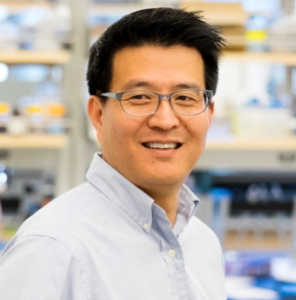BME’s Michael Yu (also adjunct professor of Molecular Pharmaceutics) at the University of Utah (the U) and colleague Shawn Owen (BME adjunct associate professor) recently received a 5-year $1.9M NIH R01 grant funded by the National Institute of Arthritis and Musculoskeletal and Skin Diseases (NIAMS). This interdisciplinary team will combine innovative collagen hybridization technology from the Yu lab with antibody engineering methods developed in Owen’s lab. Together, they aim to develop innovative antibody-based therapies designed to precisely target inflamed tissue in arthritic joints, maximizing effectiveness while minimizing side effects, offering new hope for patients with rheumatoid arthritis.


Bones and cartilage are common sites of serious degenerative diseases (e.g. cancer, arthritis, osteoporosis). An improved strategy to localize therapeutic agents to skeletal tissue (for high efficacy) with minimal distribution to other sites (for low side effects) could lead to significant improvement in treating a wide range of debilitating conditions. Recent advances in antibody therapy have produced promising drugs for rheumatoid arthritis (e.g. infliximab, abatacept); however, they have off-site, target-related side effects due to systemic immune suppression. Due to these side effects, mainly serious infection, patients must be screened for therapy. Co- or concurrent administration of two types of immune modulatory drugs is not currently practiced, although such an approach may treat RA symptoms better.
The new Utah study aims to synthesize new collagen hybridizing peptide that have high affinity to denatured collagen, a signature of arthritic tissue. Yu and Owen plan to develop RA joint-targeted anti-TNF-alpha therapy by conjugating CHP to antibody pieces that neutralize TNF-alpha, a known inflammatory protein mediator of RA. They will study the pharmacological properties, efficacy, and systemic immune suppression of the antibody-CHP conjugates in a mouse model of RA disease.
Yu and Owen assert that success of this work may lead to an entirely new platform for antibody therapy for RA and other autoimmune diseases.